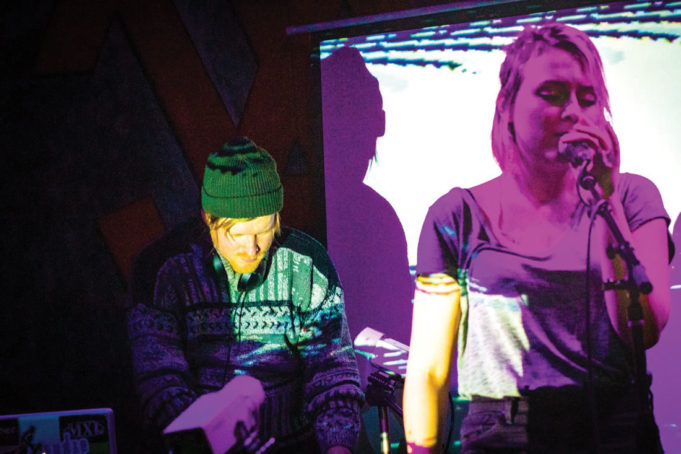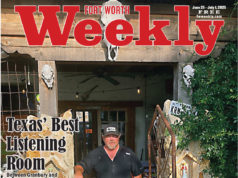Sam Culp’s house includes everything you’d expect: a kitchen, a bedroom, a bathroom, and, of course, a room for making hot tracks. Most homeowners would probably forgo that final finish, but for Culp and roommate Peter Wierenga, it’s a must: Their home is also their office and the home base for Common House Collective – a production service that aims to do far more than cut records.
Culp, Wierenga, and their business partner Andrew Maley created the collective to provide Fort Worth artists with a space to create and make a living doing what they love.
So far, the Collective has teamed up with blues artist Bryce Bangs, electro-pop singer Devi, rapper Wrex, and electronic duo Vogue Machine, with whom the collective produced music for a bumper for the popular cartoon Rick and Morty, featured on Cartoon Network’s Adult Swim programming.
“We build community, and we do it through dope-ass music,” Culp said.
Mayley, who moved to town from San Antonio seven years ago, was struggling to make a living as a musician.
“I was making maybe $13,000 a year as a bassist,” he said. “My band Dovetail played Warped Tour, and I barely made enough to pay our bills.”
He sought a way to keep playing music while also paying his bills, and he wanted to help other artists, too.
Culp and Wierenga were experiencing the same difficulties, so the trio formed Common House in November 2017. Wierenga, a drummer and vocalist for the band Siberian Traps, is the engineer, Culp is the producer and lead on pre-production, and Maley manages business development. The company has two criteria for the artists they work with: talent and work ethic.
“If you want to make music, you’re signing up for a shit-show,” Culp said. “It won’t always be easy, it won’t always be cheap, but if you’re ready to do it, I’ll work with you.”
Bryce Bangs was the Collective’s first real breakthrough. The blues rocker was looking to cut a record and hooked up with Culp. The two worked on pre-production for four months, Culp said, putting every idea on the table and laying the foundation for the first full Common House record.
Bangs said Culp opened his eyes “to new ways to write songs. Whenever I doubted his ideas, he’d stop, look me in the eyes, and say, ‘Dude. Trust me. It’s going to be dope.’ ”
After days of nonstop work in the studio, Bryce Bangs, the blues singer’s sophomore album, became the template for future Common House collaborations.
Vogue Machine approached Common House when the band needed something mastered quick. Dylan Rice, one-half of the electro duo, said he was nervous about working with the Collective because of his negative past experiences with producers.
“They won us over instantly,” he said. “Their energy was infectious, and they were dedicated to creating the kind of sound we were dreaming of and doing it our way.”
Culp also convinced Vogue Machine to join BMI, the rights management group, to ensure the band could retain the rights to their tracks. Maley said encouraging his acts to own their songs is one of Common House’s main priorities.
“We’re big proponents of not getting signed,” he says. “At the end of the day, we want to make sure what’s yours is yours.”
Devi knew Wierenga from various part-time jobs, she said, and she met Culp at a Siberian Traps show. The trio started hanging out, talking music, and Devi knew she had found her tribe. She didn’t think she had the money to produce anything.
“I’ve noticed a pattern with all these artists they’re working with,” she said. “They have insane talent but not insane money. But [the Collective] was willing to find a way to make it work with me.”
She cut her debut single, “It’s Devi, Bitch,” with Common House in the fall of 2018 and has since dropped a steady slew of singles and covers. She said working with Common House feels more like a family than the usual hired-gun producers, which Maley said was a goal for his venture.
“You don’t really get a lot of family in the music industry,” he said. “It’s either you or me, not us. I don’t know what the future of music looks like, but we want to help you, and we’ll always be there for you.”













You’ll probably never find a guy to work harder for you than The Maley. Congrats guys!